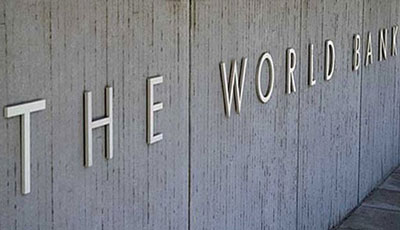World Bank Approves $500 Million Project to Improve Access to Finance for Micro, Small and Medium Enterprises

The World Bank today approved a $500 million loan for the MSME Growth Innovation and Inclusive Finance Project to improve access to finance for Micro, Small and Medium Enterprises (MSMEs) working in the manufacturing and services sector, including startups and early stage ventures.
In India, MSMEs account for more than 80 percent of total industrial enterprises, produce over 8000 value-added products and employ an estimated 60 million people. It contributes around 45 per cent to manufacturing output and about 40 percent to exports, both directly and indirectly. In addition, over 50 percent of MSMEs are rural enterprises and widely distributed across low-income states making them an important sector for promoting economic growth and poverty reduction.
However, lack of adequate finance is one of the biggest challenges facing the MSME sector. Financial institutions have limited their exposure to the sector due to a higher risk perception, information asymmetry, high transaction costs and the lack of collateral. The MSME census of 2006-07 estimated that about 87 percent of MSMEs did not have any access to finance and were self-financed. Credit towards micro and small enterprises represent only around 13-15 percent of formal financial institutions portfolio.
The project will support MSMEs through direct financing by the Small Industries Development Bank of India or SIDBI, an apex financial institution for promotion, financing and development of MSMEs in India, as also through Participating Financial Institutions (PFIs) across three components. These include support to startup debt financing and risk capital as well as support to service and manufacturing sector financing models.
“With eight million people entering the labor force every year, MSMEs have the potential to create many new, innovative jobs. However, for these ideas to take shape, MSMEs will need easier access to finance. This project will develop innovative products that address such constraints and help them achieve their true potential,” said Onno Ruhl, World Bank Country Director in India.
The project’s first component will support SIDBI in developing, innovating and scaling up its startup debt financing program as well as support entry of potential participating financing institutions (PFIs). The India’s startup ecosystem is currently one of the fastest growing in the world and the third largest startup base with 3,100 startups (after the United States with 41,500 start-ups and the United Kingdom with 4,000). While there has been incredible growth in equity financing in the Indian ecosystem, debt financing is non-existent for the majority of the vast growing startup enterprises which severely constrains the necessary rapid growth startups need to survive. The project will seek to address this gap and demonstrate financial products that can unlock the potential of India’s startups and early stage ventures.
Its second component will support the financing of MSME enterprises in the services sector. Although the structure of the Indian economy is markedly shifting towards services (65 percent of Indian GDP), enterprises in this sector continue to face challenges in accessing formal finance mainly due to lack of physical assets to provide as collateral. Financial depth (credit to GDP) for this sector is a mere 25 percent (RBI). In an attempt to address this issue, SIDBI has introduced new products and considering their potential to grow, this project will support scale up of innovative products which are better tailored for MSMEs in the service sector, including franchise financing.
The project will also support MSMEs in the manufacturing sector through innovative financial products including Loan Extension Services (LES) and cluster financing – including women-led clusters. Particular focus will be to expand manufacturing activity in financially underserved areas, including low-income states especially through refinancing, as banks and other PFIs have a deeper network in these states.
“Access to formal financing is challenging as financial institutions are yet to develop appropriate risk assessment frameworks to assess enterprises that fall under the MSME sector. Traditional banking based on collateral lending does not cater well to these large, innovative and dynamic segments of the Indian economy. Thus, despite its contribution to GDP, its potential is not fully realized and many firms are unable to grow sufficiently. The introduction of customized products with innovative financing mechanisms will help unlock the market for lending to MSMEs at all stages of growth, including start-up firms,” said Niraj Verma, Lead Financial Sector Specialist and the Task Team Leader for the project.
The loan, from the International Bank for Reconstruction and Development (IBRD), has a 5-year grace period, and a maturity of 10 years.
Source: The World Bank




























